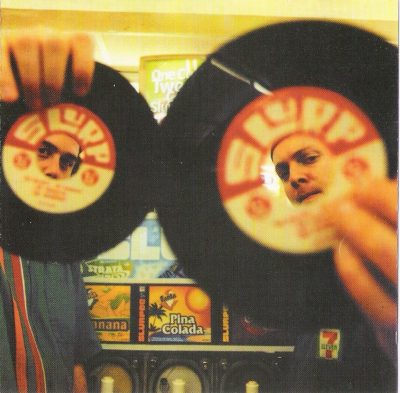

But those reviews weren’t the artist’s fault and they arguably misunderstood ‘Endtroducing.’, a record that may have worked in the hip hop idiom, using the sampled language of rap - particularly the boom bap productions of the mid 90s - but which wasn’t an attempt to replace hip hop or do away with the MC. Shadow didn’t help himself by including a brief track on ‘Endtroducing.’ called ‘Why Hip-Hop Sucks in 96’. And they hate Shadow for the misguided reviews that acclaimed him as the saviour of hip hop, someone who would bring “depth” to a genre that was, quite frankly, doing very well on its own before Shadow came along.

‘Endtroducing.’ feels like the apotheosis of digger music, music forged in dusty warehouses and family clear outs, music that stunk of warped vinyl and dog-eared sleeves.Ī lot of people hate ‘Endtroducing.’ for sucking the vocal lifeblood that is the MC out of hip hop. But ‘Endtroducing.’ is undoubtedly a masterclass in the art of sampling, created with just an Akai MPC60 sampler, a Technics SL-1200 turntable, an Alesis ADAT tape recorder and a mountains of records, which Shadow had assembled over years of obsessive music buying. Guinness World Records would in 2013 proclaim it the first album created entirely from samples, which may or may not be true. ‘Endtroducing.’ proved that you don’t need special guests, MCs or singers to create a universe that is perfectly balanced. When (sampled) voices do arrive on ‘Endtroducing.’ - the count offs on ‘The Number Song’, say - the meaning of the words rarely seems to matter, with language serving more as verbal percussion, another layer to Shadow’s immaculate musical mash. ‘Inhuman’ is often used to mean “cruel” or “barbaric”, lacking in passion but ‘Endtroducing.’ is inhuman in a different way, like an album put together by the sheer power of thought. ‘Endtroducing.’, by contrast, exists entirely in its own world, self created and hermetically sealed from reality. ‘Psyence Fiction’ feels oddly needy, like an overeager school kid who can’t wait to tell you all about his new friends: guest spots from the likes of Thom Yorke and Richard Ashcroft were the much-vaunted selling point of ‘Psyence Fiction’, the brightly shining melodic lights that Shadow’s beats served to support. ‘Psyence Fiction’, produced by Shadow with Lavelle on ideas, is the all-star continuation of ‘Endtroducing.’, its glamorous, over-operated twin an album that took the ‘Endtroducing.’ blueprint, painted it in lipstick and sat an expensively deconstructed jazz bonnet on its head. And yet, when it comes down to fundamentals, the pair couldn’t have been more different. The two records are alike in many ways, courtesy of Shadow’s towering beats and atmospheric nous. ‘Endtroducing.’, the debut album by Shadow himself, shows Mo’Wax at its cultural apex, an hour-long blitz of inspired beats, wonky samples and cinematic ambience that seemed, for a few months in 1996, to make a convincing argument for abstract instrumental hip hop as a worthy partner to proper hip hop, rather than a B-side-relegation or after thought. DJ Shadow, a nerdish record collector turned DJ/producer from California - real name Joshua Paul Davis - was involved with both: ‘Psyence Fiction’, the debut studio album from UNKLE, the trip hop supergroup (shudder) put together by Lavelle, is the label at its bloated nadir, an overextended mish mash of fashionable ideas and ill-fitting guests that rode a wave of hype into the British top five in August 1998. If you want an alternative approach to the Mo’Wax story and the avant beat scene that the label fostered, however, the easiest way is to listen to two Mo’Wax records, born just two years apart, which showcase the label at its very best and utter worst. It is a label whose spectacular rise and demise merited its own film, an honour it eventually received with the release of The Man From Mo’Wax, a 2016 documentary that took a searingly honest look at the life of Mo’Wax founder James Lavelle. Mo’Wax was undoubtedly one of the most important British record labels of the 1990s, showcasing a kind of retro futuristic approach to art, where aesthetic vision seemed to matter just as much as musical genre.


 0 kommentar(er)
0 kommentar(er)
